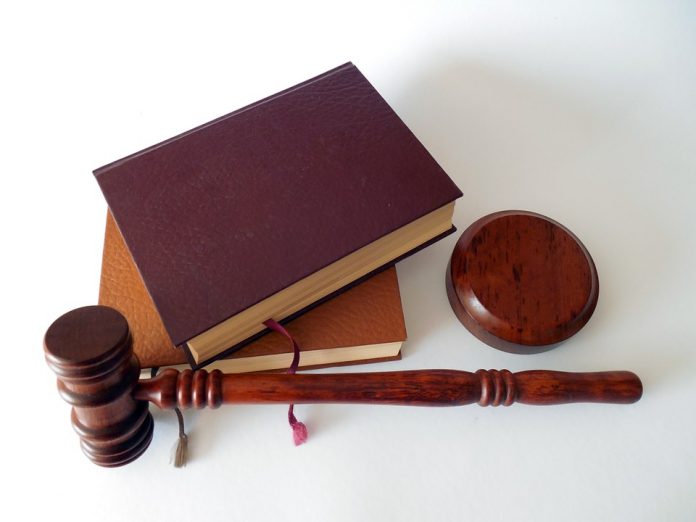This article is written by Asgar Ali, pursuing a Diploma in Industrial and Labour Laws from LawSikho.com. Here he discusses “How to Demonstrate Compliance with the Standing Orders Act in case of an Inquiry or Investigation”.

Introduction
Standing Orders of any establishment describe the condition of recruitment, staffing of workers, discharge of their duties, Attendance, details of leaves and holidays, short leave, etc which express the working conditions. Standing orders also express the disciplinary actions like suspension /dismissal in case of misconduct is observed, thus to minimize conflict between the management and workers in work-related activities, hence a Model Standing order helpful in avoiding certain Industrial disputes.
The Industrial Employment (Standing Orders) Act in an Industrial establishment entails its employer to define the working conditions of employment clearly by issuing a model standing order which is duly certified by the appropriate government.
Applicability
This Act is applicable to any industrial establishment in which one hundred or more than one Hundred workers are in employment or were working on any of the days during the previous 12 months.
A Model standing order which is issued under the Act deals with the categorization of workmen as per their trade/work, payment of wages to workers, their leaves detail, holidays, Working shifts, Recruitment and termination procedure, etc.
In a significant judgment on gender justice, the Honorable Supreme Court has ordered that employers should also include in their Standing Orders the strict prohibitions on sexual harassment of employees and appropriate penalties should be imposed against the offending employees as per procedure laid down under Standing order.
The content of a Standing Order after it is finally certified under the Act, shall be displayed by employer at prominent places either in English or in the language understood by the majority of workers working in that establishment (sometimes in English, Hindi and Local language being understood by the majority of workers) on particular Notice boards which shall be maintained properly. The display area can be any that place in the workplace where the majority of the workmen enter/assemble (like time office/ Main gate area/ Nearby Entry /Exit gate etc.) in that industrial establishment or it may be displayed in all those departments wherein the workers are in work.
Objectives
- To bring uniformity in the working conditions or conditions of services under different employers in different organization.
- To bind the employer that he cannot change work conditions of employment (once it is written and approved by an appropriate government) to workers’ detriment or to the prejudice of their basic rights and interests. Hence, cannot be minimized or exaggerated by the employer at his choice.
- To communicate the conditions of employment in written form which is helpful to get understood to any of workers having interest in that organization and hence it becomes an opportunity to a prospective worker to either accept them or join the industrial establishment or to take a clear decision as per his employment need.
- Compliance under this act is helpful in this way (i.e. for maintaining work harmony and continuous improvement. Hence, minimize conflict between the management and workers and helpful in avoiding certain Industrial disputes.
An Inquiry or an Investigation
For the uninterrupted execution of any establishment or industry, the defined policies showing Code of Conduct, work discipline, Service contracts, Job agreements, and standing orders must comply
In case, an employee is not complying with stipulated codes of conduct, he is liable to face disciplinary actions initiated by concerned Management according to their Standing Order.
This procedure is called as Investigation/ Internal Inquiry/ Departmental investigation etc and it is conducted in accordance with the standing order specified by that management.
Inquiry/investigation means
(a) Examination/hearing of the Case
(b) Collecting Evidence and Recording it
(c) Compiling relevant documents on which the finding are based, to reduce in righting the report,
Based on the above description, About an Investigation or an Inquiry, it is understood that the word “Investigation or Inquiry” is mostly the charges of indiscipline and misconduct by an employee. In Simple words, an investigation or an Inquiry means any departmental Inquiry in which the matter is decided by concerned administrative In-charge and not by the courts of law.
There is a limitation for a commercial work that a public servant holds protection provided in Constitution of India as per Article 311, But No such provision available for any industrial worker. Even the Public Servants Enquiries Act 1850 is also silent in such matters.
Compliance with the Standing Orders Act in case of an Inquiry or Investigation
Investigation or Inquiry is like a trial in a court of law, but whilst any trial in a court is for an offense carried out against society, an Investigation or an Inquiry is conducted for that wrongdoing committed against the establishment and shall be punishable under the standing orders, rules, regulations of that organization.
Under Industrial Disputes Act or other substantive laws for example Factories act 1948, Indian Mines Act, etc, Investigation/Inquiry is not taken as or considered as a legal requirement, but there is a provision under Standing Orders to frame it in “Industrial Employment (Standing Order ) Act, 1946”. Consequently, now at present, it is well-established that such standing orders contains the Legal Power and thus, constitute the legal terms of services/ employment.
To discharge any employee, to terminate his services without holding a fair Investigation leads to the violation of principles of natural justice and such matters can be taken into notice of Industrial Tribunal or Labour Courts and it can result into punitive actions against the employer for not holding a fair Investigation or fair Inquiry, because, any dismissal without holding an Investigation or a fair Inquiry is considered as illegal in the eyes of labour court.
Principles of Investigation or Inquiry
- There must be a fair investigation and rule of Natural Justice must be complied.
- The person charged for allegations must be heard and He should be called for his clarification and presenting evidence in his support.
- Don’t examine any witness in the absence of the accused employee.
- Cross-examine shall be done by constituted investigation committee (like ICC in case charge of sexual harassment).
- The inquiry must be as per Standing order compliance and secrecy must be maintained.
- The whole inquiry must be conducted and completed in a stipulated time period.
- The Inquiry Officer should be free to allow or disallow any evidence, but shall reduce it in writing,
- Decisions must be taken jointly by members of the investigation committee and it shall be written in the prescribed format as per standing order.
Investigation or Inquiry Process
Fact-Finding Inquiry
When concerned management observes that any act of misconduct has been committed by his employee, then they shall do immediate Inquiry into the matter. Such an Inquiry may be termed as Fact-Finding Inquiry.
In such a situation, the offender/wrongdoer may also be summoned and questioned during the Inquiry. The aim is to reach over a conclusion if a prima facie case exists for taking disciplinary action against that concerned workman or not. If during preliminary Inquiry, the management finds out that an act of misconduct has been committed by concerned, then the charge sheet shall be issued.
Honorable Supreme Court in Case of M/s Powari Tea Estate Vs. M.K. Barktaki ( of 1965 II LLJ 102), held that the accusation should not contain any appearance which may give rise to any sensible apprehension in the mind of the worker against whom the Inquiry is held that the management board has already concluded him guilty.
Charge Sheet
Charge Sheet is a written statement issued to delinquent (accused) with an accusation made against him (an employee) in respect of an offense supposed to have been committed by him.
The charge sheet is not considered as a record of evidence. The person in charge, who is signing that charge sheet, is not a party (plaintiff, etc.). He is not held responsible for the truthfulness of the facts specified in that charge sheet. He simply can inform to the accused about what are the charges against him (Refer Case law of Bennet Coleman & Co. LAC page 2 1956)
In the charge sheet, the details of misconduct committed the date and time when it was committed and the relevant section of associated Standing orders under which the misbehavior falls must be clearly mentioned.
The charge sheet must be specific and it should be asked to the delinquent to present his explanation within a given / reasonable time that is within 24 hours, 48 hours or by so and so date depending on the seriousness of the misconduct.
Sometimes, there may be a situation when an employee commits an act of misconduct and it does not fall under the mentioned list of misconducts in the standing orders. Even, sometimes, the employer is at authorization to take appropriate disciplinary action for the sake of discipline and proper order in his organization, but the matter requires to be dealt in a sensible manner and in a logical way.
A charge sheet is required to be signed by an officer having authority and should be competent to sign it which may usually be a Disciplinary Authority who has been delegated right impose punishment.
It is important that a charge sheet is required to be carefully drafted and properly provided to a person charged (To whom it is intended to be delivered/ served).
Following particulars are required to be mentioned in a charge sheet
- Full Name of the worker ( to be charged )
- Employee Code
- Address Detail
- Date / shift, Time, area/ Place of incident
- Details of event/misconduct charged
- Appropriate sections/ clause and detail of misconduct under the prescribed standing orders.
- Summon by Management for an explanation by the charged employee within a predetermined time
- Enclosed copy associated to charge sheet, if any.
Where an employee declines to accept a charge sheet, the same can be understood as misconduct and it is optional that another charge sheet is issued and the Inquiry is placed on first as well as on second charge sheet. In most of the organizations, it is specifically mentioned in their standing orders that “refusal to receive the charge sheet or related communication” shall be understood as misconduct.
Evidence: In General, Evidence consists of oral statements of witnesses, written documents and various those other subjects which are perceptible by the senses.
Proof: Proof is the procedure of presenting/ submitting evidence before the court or any judicial body. The intention of proof is to assist the court in facts finding.
Additional prominent Points
Ex-Parte: Even after reasonable opportunity has been provided to the employee to defend himself, but he shows his no availability and procrastinate to be presented himself before Inquiry committee, the Presenting Officer, then will present his case by presenting witnesses and presenting documents in the normal manner.
However, there will be no cross-examination, because the defense is not in attendance. Then the Inquiry Officer shall record all such proceedings as mentioned above and shall proceed on the merits of the case.
Appeal: A worker can appeal to the Appellate authority against the judgment of the Disciplinary Committee, but it is required to be done within the prescribed time period. Then Appellate Authority may give a personal hearing to the employee if it is required by him in case of his dismissal/removal from office. The punishment awarded by the Disciplinary Authority can be retained or reduced but cannot be enhanced by the Appellate Authority. The appellate authority must settle the appeal request within a stipulated time.
Students of Lawsikho courses regularly produce writing assignments and work on practical exercises as a part of their coursework and develop themselves in real-life practical skill.
 Serato DJ Crack 2025Serato DJ PRO Crack
Serato DJ Crack 2025Serato DJ PRO Crack










 Allow notifications
Allow notifications


